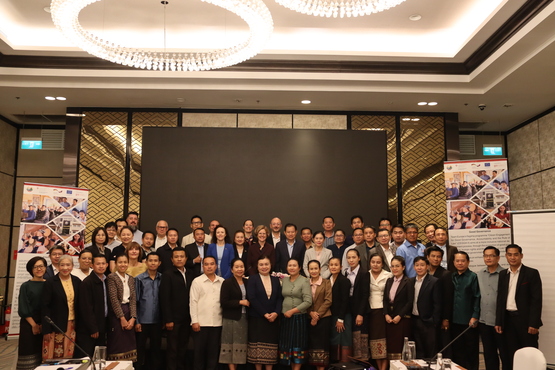CEGGA Technical Coordination Meeting Jointly Agrees on Importance of CSOs

The Citizen Engagement for Good Governance, Accountability, and the Rule of Law Programme (CEGGA II), a Team Europe Flagship Initiative, held its Technical Coordination Meeting on 10 December 2024 in Vientiane Capital. The meeting brought together key development and implementing partners to reflect on achievements, share lessons learnt from the past six months, and set clear operational plans for the upcoming year.
During the meeting, both representatives from the Government of Lao PDR and from civil society emphasised the importance of coordination and collaboration between the state and civil society for the development of the country.
In addition, Dr. Chansy Phimphachanh, chairperson of the Lao CSOs Coordination Committee (LCCC), highlighted the importance of the CEGGA Programme, particularly in supporting Civil Society Organisations in Laos. She said, “CSOs play a vital role in supporting Lao PDR in its transition from Least Developed Country status successfully. Therefore, CSOs need to be further strengthened to fulfil this role effectively.”
Over the past years, the CEGGA Programme has enhanced dialogue between CSOs and government bodies while providing capacity-development initiatives for both. The programme has also strengthened citizen-focused decision-making in National and Provincial Assemblies and improved access to justice in Laos through legal awareness and outreach initiatives.
Additionally, at every step of its journey, CEGGA has actively promoted gender equality and inclusion. For instance, with CEGGA's support, the Provincial People’s Assemblies of Khammouane and Luang Prabang had the opportunity to hold their first-ever exchange meeting on gender-sensitive topics, such as violence against women and children, as well as human trafficking, in November of this year.
The CEGGA II Programme aims to increase citizen engagement in the national development process of Lao PDR by promoting good governance, the rule of law, and access to justice to ensure that no one is left behind in the national development. The programme is proudly supported by Switzerland, Germany, and the European Union, and is implemented by GIZ.